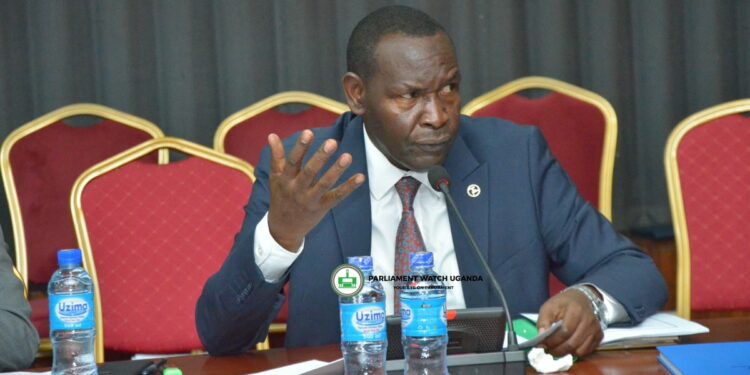The Presidential Affairs Committee has called for additional funding to enhance the facilitation and infrastructure of Resident District Commissioners (RDCs) across Uganda.
While presenting the Committee’s report on the 2025/26 budget for the Office of the President before Parliament’s Budget Committee, Chairperson Alex Byarugaba emphasized the critical role of RDCs in monitoring government projects and driving socio-economic transformation.
Byarugaba highlighted a Shs6.2Bn funding gap for RDC facilitation, noting that the indicative budget for 2025/26 provides only Shs14.8Bn out of the Shs21Bn required. The Committee recommended addressing this shortfall to ensure RDCs can effectively execute their oversight and mobilization duties.
The Committee also stressed the urgent need for improved office accommodation for RDCs. With only Shs700M allocated to construct one office per year, Byarugaba projected that it would take over a century to meet the current demand. To accelerate the process, the Committee proposed allocating an additional Shs2.8Bn annually, enabling the construction of five offices per year.
“The Office of the President is central to mobilizing the population towards achieving socio-economic development, transformation, and prosperity for all. However, adequate funding is essential to achieve these goals,” Byarugaba noted.
However, the proposed budget allocations sparked a heated debate, with some MPs expressing concerns about the expanding number of RDCs and its implications for public expenditure.
Kira Municipality MP, Ssemujju Nganda, criticized what he described as a “bloated bureaucracy,” pointing to the President’s continued appointment of RDCs beyond the country’s capacity to accommodate and facilitate them.
“When the President assumed office, Uganda had 39 districts. Now we have over 600 RDCs. As you construct the existing ones, the President is appointing new ones. This creates a perpetual financial burden on taxpayers,” Ssemujju argued. He suggested that Parliament consider reducing the number of RDCs to align with the original district structure and cut costs.
Nevertheless, the Presidential Affairs Committee defended its recommendations, arguing that adequately facilitated RDCs are essential for effective governance. The Committee proposed that the allocation process consider the size and unique needs of different districts to optimize the impact of RDCs.
However, critics remain skeptical, calling for a thorough review of the RDC framework. Ssemujju argued that the unchecked growth in appointments undermines the government’s commitment to fiscal discipline, diverting resources from other critical sectors like health and education.
Meanwhile, the Budget Committee is expected to deliberate further on the proposals, weighing the benefits of enhanced facilitation against concerns over fiscal sustainability.
Do you have a story in your community or an opinion to share with us: Email us at editorial@watchdoguganda.com










